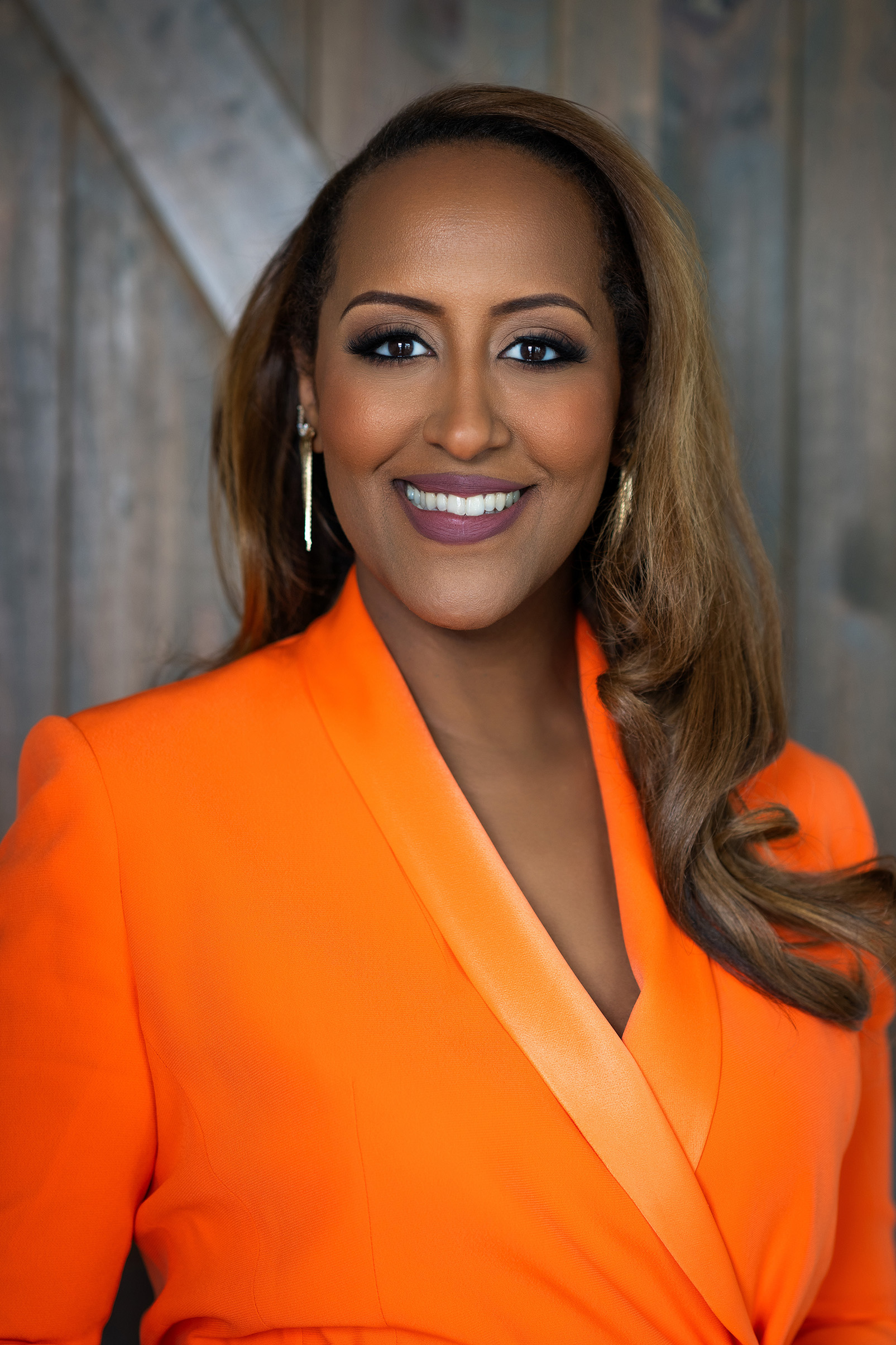
Bofta Yimam: Five Minutes, Five Questions
Ahead of our exciting Pitch Academy session on July 11th, we had the opportunity to sit down with Bofta Yimam, an Emmy Award-winning journalist and founder of StoryLede®, to discuss her journey, insights, and top tips for delivering a powerful pitch. For over a decade, Bofta has reported live on the morning and evening news for top TV outlets, including CBS National News, EuroNews, and the BBC. From the White House and the historical 2020 election to the Covid-19 response, Bofta has covered a plethora of stories that have appeared across the country.
As the daughter of Ethiopian immigrants with no inside connections, and now a premier keynote speaker and owner of a boutique visibility and marketing firm, Bofta is living proof that success is not a static object to obtain. Rather, it is constantly woven from the strength and resilience gained from life’s trials and struggles.
From overcoming obstacles to embracing our "Multidimensional Gifts" to “wowing” an audience, there is a lot to discuss.
1. As an Emmy Award-winning journalist and founder of StoryLede®, what inspired you to focus on helping others master their pitch introductions?
Pitching is another opportunity to share your story – and your why – in a compelling manner. StoryLede© is a communications and marketing firm that specializes in transforming the way you incorporate storytelling and laser-focused messaging on all platforms, including social media.
Naturally, as business owners, pitching is part of what we’re all doing on a regular basis to help grow and scale our organizations. By refining your pitch, you’re preparing yourself not only for unique funding competitions, but also those “more ordinary” moments at major conferences, local networking events, and discovery calls.
There’s no question: a well-crafted pitch aligned with your story is critical to your success.
2. You have overcome many obstacles in your life. How did you find the strength, resilience, and confidence to do this?
I think it’s reminding myself that part of life is navigating challenges to the best of my abilities – and that everything is “figure-out-able”! This is a phrase that’s stuck with me. I remember that any limited belief is my own doing, so I need to be aware of it and operate from a higher place. When I feel discouraged, I work to keep an open mind about what’s possible. As best-selling author, Robert Kyiosaki, says:
“A statement shuts down the mind, a question opens the mind.”
For me, rather than spinning into worry that does not serve me, it’s proved helpful to ask, “what’s the best next step?” I’ve also found that surrounding myself with a strong environment of positive like-minded individuals, being unafraid to ask for help, and the willingness to act on intuition, are incredibly important as well.

3. You talk about embracing "Multidimensional Gifts.” Could you elaborate on what this means and how it applies to one's professional or entrepreneurial journey?
Despite speaking to hundreds of thousands of people, I felt like I was playing small as a TV broadcaster. I realized I had multiple gifts that were not necessarily being used – and was also craving a different life. This led me down a path of exploration…
If I had not been curious about my other gifts and made a conscious choice to explore, I would not be where I am today: speaking to global organizations, hosting workshops, and operating a business. By exploring these avenues, each of which has allowed me to flourish in creativity, freedom, education, and also expand my network tenfold, I’ve leaned into embracing my full self.
This does not mean the path is easy. However, embracing your multidimensional gifts does mean that the world is able to experience more of what you have to offer. Ultimately, there’s joy in this discovery as well, since it’s getting you closer to your authentic self.
4. What key advice would you offer to a young woman of color aspiring to break into the broadcasting industry today?
In my first two TV roles, I wrote, shot, edited, interviewed, and performed live on-air on a daily basis. This is often called “one-man-band reporting” because you do it ALL.
I can look back and remember carrying a camera and tripod while setting up for an interview during the incredibly hot summers in Georgia. It was “boots on the ground” reporting and I loved it. It also tested my patience and resilience in many ways, but I learned a tremendous amount in those smaller stations that I now apply to key aspects of my life and business.
My advice:
Go to a station that’s going to offer you the best training. You may not carry a camera and learn how to shoot footage, but you should be able to admire the way they develop and coach their reporters to perform with excellence. If it’s a strong station, you’ll feel tested because they’re pushing you to perform at a higher level.
At times, it will be difficult. But ultimately, the skills you learn will help you stand out from other journalists down the road. Most importantly, you’ll become a stronger storyteller, a better team player, and also have the abilities to tap into powerful under-the-radar story ideas that impact your community. These are qualities that you can capitalize on in any newsroom.
5. What can attendees expect to learn from your upcoming Pitch Academy session on July 11th, and how can these insights help them in both live and virtual presentations?
In the Pitch Academy session, attendees will learn how to amplify their intro by starting STRONG.
We’ll dive into discovering the best strategies for “wowing” your audience and captivating their attention in an impactful way.
Those who attend will also gain valuable insights and learn best practices to calm their nerves as well as top tips for presenting LIVE (in-person or virtually).
I’m super excited!!
